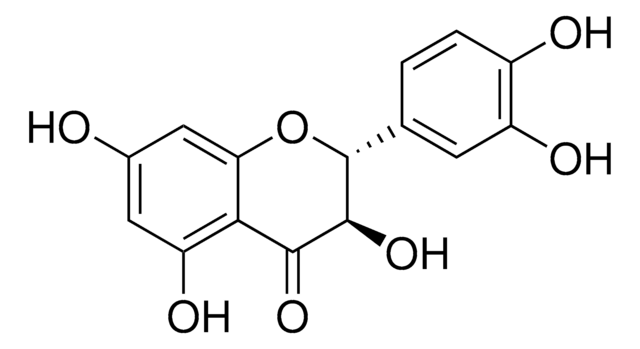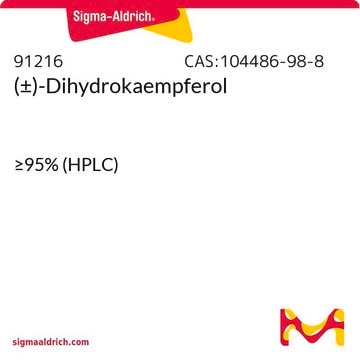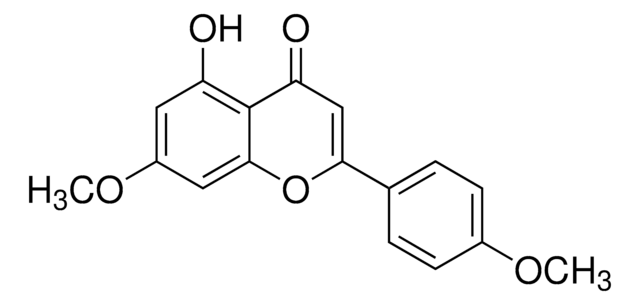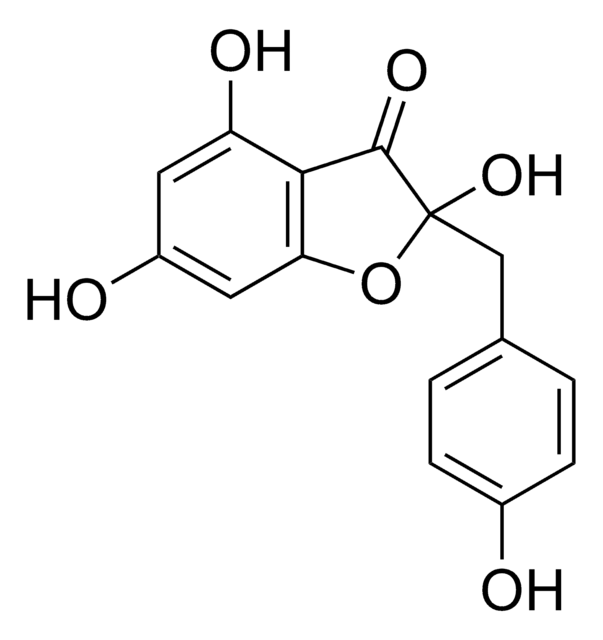SMB00175
Aromadendrin
≥95% (LC/MS-ELSD)
Sinónimos:
Dihydrokaempferol, Katuranin
About This Item
Productos recomendados
Análisis
≥95% (LC/MS-ELSD)
formulario
solid
aplicaciones
metabolomics
vitamins, nutraceuticals, and natural products
temp. de almacenamiento
−20°C
InChI
1S/C15H12O6/c16-8-3-1-7(2-4-8)15-14(20)13(19)12-10(18)5-9(17)6-11(12)21-15/h1-6,14-18,20H/t14-,15+/m0/s1
Clave InChI
PADQINQHPQKXNL-LSDHHAIUSA-N
Descripción general
Acciones bioquímicas o fisiológicas
Palabra de señalización
Warning
Frases de peligro
Consejos de prudencia
Clasificaciones de peligro
Acute Tox. 4 Oral
Código de clase de almacenamiento
11 - Combustible Solids
Clase de riesgo para el agua (WGK)
WGK 3
Punto de inflamabilidad (°F)
Not applicable
Punto de inflamabilidad (°C)
Not applicable
Certificados de análisis (COA)
Busque Certificados de análisis (COA) introduciendo el número de lote del producto. Los números de lote se encuentran en la etiqueta del producto después de las palabras «Lot» o «Batch»
¿Ya tiene este producto?
Encuentre la documentación para los productos que ha comprado recientemente en la Biblioteca de documentos.
Los clientes también vieron
Nuestro equipo de científicos tiene experiencia en todas las áreas de investigación: Ciencias de la vida, Ciencia de los materiales, Síntesis química, Cromatografía, Analítica y muchas otras.
Póngase en contacto con el Servicio técnico










